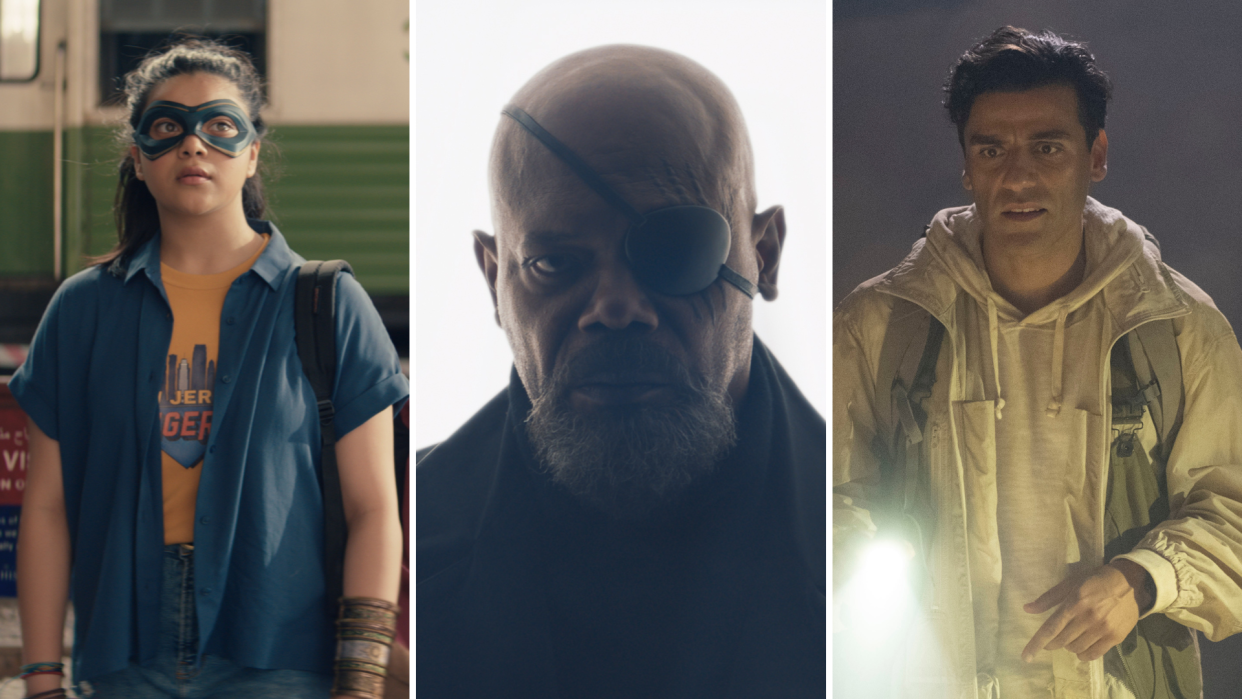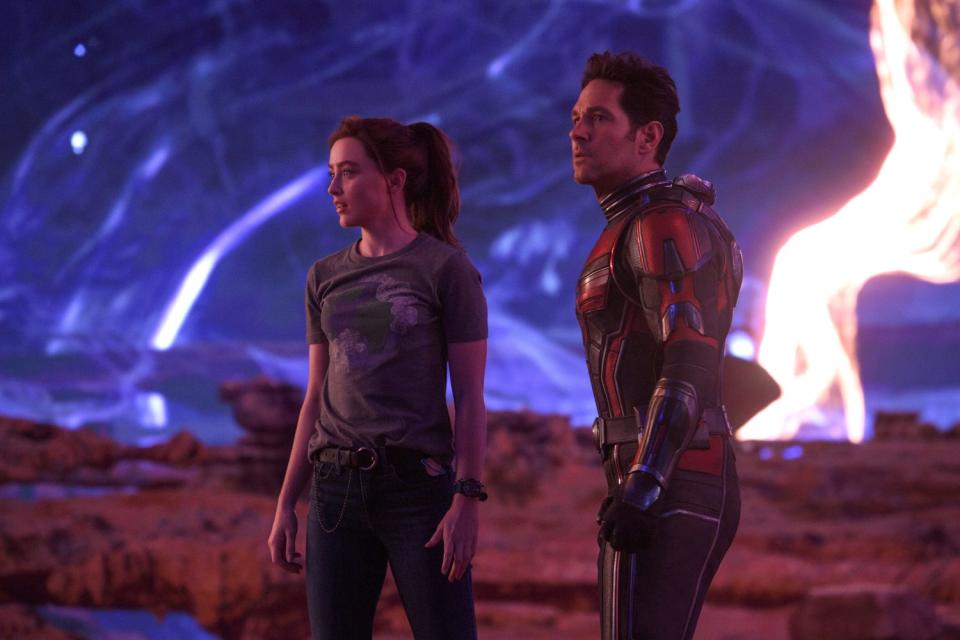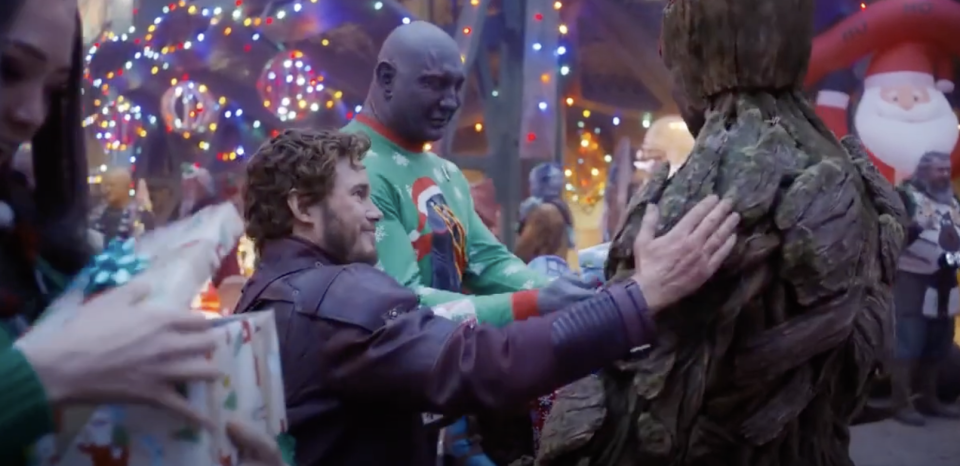Marvel Films Can Learn a Lot from Marvel Television

These days, the Marvel Cinematic Universe looks more like the Marvel TV Universe.
Technically, the MCU does include Marvel Studios’ serialized streaming projects, along with the major motion pictures that first rolled out with 2008’s “Iron Man” and continued through with May’s “Guardians of the Galaxy Vol. 3,” but only one of those arms appears strong enough of late to carry the narrative gauntlet (so to speak) — and it’s not the one historically tasked with doing so.
More from IndieWire
Over the past two-and-a-half years, Marvel’s television content has eclipsed its feature films in quality, star power, and creative integrity. The TV arm of the MCU launched in January 2021 with “WandaVision” (exempting Marvel’s previous Netflix ventures: “Daredevil,” “Luke Cage,” “Jessica Jones,” “Iron Fist,” and “The Defenders”), which remains the studio’s most remarkable and mesmerizing series to date.
The rest may not reach that initial bar, but each title takes a stab at revamping, retooling, and rethinking the way audiences consume superhero stories, often with emerging talent at the helm. What continues to charm about the televised MCU offerings is that every title is different than the one before it, each significantly less encumbered by formula. The films? They only seem to grow increasingly bloated and predictable with each new iteration.
Part of this is owed to the fact that the MCU is growing older. It’s hard to deploy multiple refreshing origin stories as part of a superhero machine that is now decades into its operation, the kind of franchise where a film with “Doctor Strange” in its title still crosses properties (and universes), and where the crossovers are expected to be ever larger and more impressive.

Consider one MCU film series: “Thor” was a perfectly enjoyable and respectable origin story, an average representation of the MCU’s first several years and the ways in which it was able to introduce new characters. “Thor: The Dark World” is all but synonymous with the sophomore slump, a sequel so confusingly lackluster that it had to be retroactively assigned narrative significance in “Avengers: Endgame.” That’s what most of the MCU is now: meandering and superfluous, with scarce pockets of pure enjoyment and a promised payoff that is, at best, years in the making.
Then there’s “Thor: Ragnarok,” hailed by many as one of the best Marvel movies ever — a wild creative gamble, an effective character and franchise reset, and just a damn good time at the movies. The Marvel TV universe is a mix of the first “Thor” and “Ragnarok”; complete with charismatic character introductions, genre experiments, and opportunities for existing characters to stretch their legs and play.
During the same period of time that saw Disney+ release “WandaVision,” “The Falcon and the Winter Soldier,” “Loki,” “What If…?” “Hawkeye,” “Moon Knight,” “Ms. Marvel,” “She-Hulk: Attorney at Law,” “The Guardians of the Galaxy Holiday Special,” and “Secret Invasion,” the company also saw theatrical or COVID-related streaming releases for films “Black Widow,” “Shang-Chi and the Legend of the Ten Rings,” “The Eternals,” “Spider-Man: No Way Home,” “Doctor Strange in the Multiverse of Madness,” “Thor: Love & Thunder,” “Black Panther: Wakanda Forever,” “Ant-Man and the Wasp: Quantumania,” and the aforementioned “Guardians” conclusion. Notably, three of those are among the studio’s top 10 highest-grossing features ever.
That’s a fairly equal volume of titles, but the TV side boasts a wide array of stories and tones: sitcom pastiche, buddy action adventure, time-traveling love story, animated multiverse adventure, secret Christmas movie, mythical mind thriller, intergenerational family drama, case-of-the-week law comedy, deranged holiday romp, and Cold War-esque espionage thriller. The films — with the exception of the legitimately impressive “Shang-Chi” (origin story!), the nostalgia-driven “No Way Home,” and the strikingly emotive “Guardians” conclusion — boil down mostly to filler, if not outright disappointment.
This is not to say that the movies are pointless or the shows universally exceptional — IndieWire’s own Ben Travers called Marvel’s TV oeuvre at large “disappointing” in his C- review of “Secret Invasion” — but the theatrical releases betray signs that Marvel fatigue pervades behind the scenes as much as in the audience. Most boil down to the same climactic action sequences — to be fair, so do the shows, but usually at the end of a more inventive journey involving a mysterious crush or a talking hippo or Kathryn Hahn.
Recently, the massive Marvel output has strained VFX houses as they scramble to complete those CGI-hybrid scenes on tight deadlines — and for what? What made the first several phases of film so exciting, including detail, artistry, anticipation, and innovation, is largely absent from the big screen, and manifests instead within episodic stories.

Bluntly, the higher purpose of having so much Marvel is content for content’s sake, but even that end has to have some meaning to it. Kevin Feige’s once-ubiquitous master plan — to unite superheroes, to tackle the Infinity Saga — lacks the stakes and clarity that it had years ago. The endgame of the current phases remains much more unclear. That encumbers both film and TV, but also affords the latter an opportunity to lean deeper into character and minutiae instead of one set-piece battle after the next.
They say we live in a golden age of television, and Marvel and Disney would be remiss not to throw their masks and supersuits deeper into the ring. In a world that experienced multiple quarantine lockdowns, plenty of viewers would rather watch an eight-hour TV show in the comfort of their own home than deliberately dehydrate themselves to make it through a two-and-a-half hour movie.
Is Marvel Studios going to pivot entirely to streaming TV? Unlikely. As the ongoing WGA strike has firmly established, streaming executives are already struggling to turn a profit and are cutting costs where it hurts creatives. Even the most successful Disney+ series (which isn’t even a Marvel title) can’t touch the $1.9 billion worldwide gross of “No Way Home” and what that does for the company. Even when films dip in quality, they’re keeping the lights on for television projects that can bring in new audiences, techniques, and talent (and some nice hardware to boot).
There would be no Marvel TV without the original MCU — but in 2023, more than two years into coexisting, the branches can certainly work better together. Marvel movies need only look to Disney+ when it comes to snapping out of their stupor, and the shows themselves can always push harder, batting against the biggest names in TV without compromising on what matters to the original fans (others have managed just fine).
With MCU film releases planned well into 2025, there’s plenty of time to figure it out — as long as the audience is willing to stick around and Marvel embraces fresh voices, creative risks, and the occasional step back from what’s just historically successful. If the central stories have taught us anything, it’s that heroes are not born but made — and one of the greatest battles is staying sharp and ready for whatever comes their way.
Best of IndieWire
Where to Watch This Week's New Movies, from an Expanding 'Asteroid City' to 'No Hard Feelings'
31 Queer and Homoerotic Horror Movies, from 'Psycho' and 'Hellraiser' to 'Fear Street' and 'Titane'
Sign up for Indiewire's Newsletter. For the latest news, follow us on Facebook, Twitter, and Instagram.

